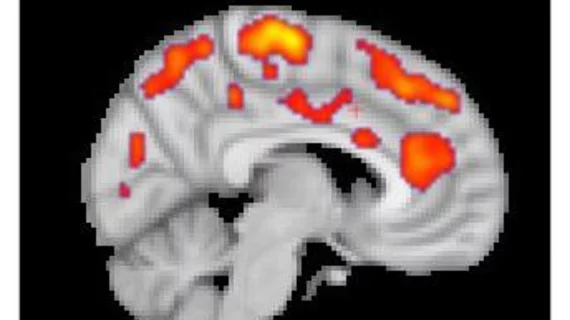Using MR/PET imaging, researchers from Massachusetts General Hospital (MGH) in Boston and the Karolinska Institutet in Sweden have revealed that elevated glial activation—widespread neuroinflammation—correlates with fatigue levels in patients with fibromyalgia, and may enhance the development of treatment.
The research was published online Sept. 14 in Brain, Behavior and Immunity.
"We don't have good treatment options for fibromyalgia, so identifying a potential treatment target could lead to the development of innovative, more effective therapies," said co-senior author Marco Loggia, PhD, of MGH's Martinos Center for Biomedical Imaging, in a prepared statement.
"And finding objective neurochemical changes in the brains of patients with fibromyalgia should help reduce the persistent stigma that many patients face, often being told their symptoms are imaginary and there's nothing really wrong with them," Loggia added.
In a 2015 study, Loggia and colleagues used MR/PET imaging and a translocator protein (TSPO)-binding PET tracer to analyze the activation of glial cells in the brains of 20 fibromyalgia patients with chronic back pain, and 14 healthy controls.
Simultaneously, Swedish researchers at Karolinska conducted a study involving 11 patients with chronic back pain and 14 healthy controls—using the same TSPO-binding PET tracer.
After combining their data into a single study, both centers found that glial activation in multiple regions of the brain in fibromyalgia patients was greater than that seen in controls. Additionally, TSPO levels in the cingulate gyrus—an area associated with emotional processing and a target of neuroinflammation in patients with chronic fatigue syndrome—corresponded with patient reported levels of fatigue, according to the researchers.
"The activation of glial cells we observed in our studies releases inflammatory mediators that are thought to sensitize pain pathways and contribute to symptoms such as fatigue," Loggia said. "The ability to join forces with our colleagues at Karolinska was fantastic, because combining our data and seeing similar results at both sites gives confidence to the reliability of our results."

